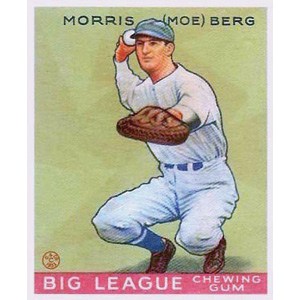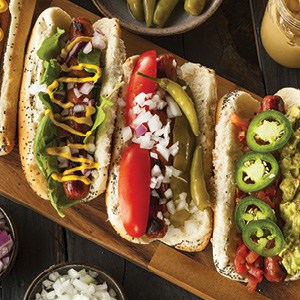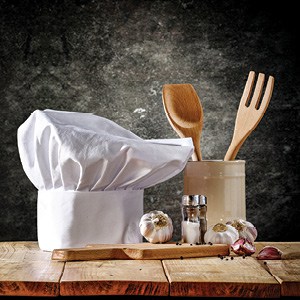Celebrated on the third Sunday in June, Father’s Day was made a permanent national holiday by, you’ll never guess, President Richard Nixon, in 1972. Who knew?
Father’s Day is usually filled with cards, gifts, and cookouts…though some dads get lucky and, like most moms on Mother’s Day, are taken to restaurants.
This section, devoted really to all men, offers a few, I must admit, stereotypical male articles: on baseball, dad duties, and grilling.
The first is about a new documentary on Moe Berg. A Columbia Law School grad and pro baseball player, Berg is probably best known for his spy career during World War II. An incredibly interesting guy, so is the interview with the filmmaker.
Most fathers—especially dads from the most recent couple of decades—would probably agree with the article that begins on page 16. It contends that being a dad isn’t just a job, that it’s actually a multitude of jobs! This is a fun read.
And, finally, it’s time to get the grill in gear. We offer a few new recipes to add to the staples in your outdoor cooking repertoire.
Whether you’re purchasing gifts for that special man (or men—fathers, grandfathers, brothers, sons, sons-in-laws) in your life, or receiving them; and whether you’re firing up the grill or making reservations, we at Jewish News hope Sunday, June 16 is a Happy Day for all!
Terri Denison
Editor
Moe Berg’s life as ballplayer and spy, this time as a documentary
 (JTA)—Moe Berg’s 15-year career as a major league shortstop, catcher, and coach in the 1920s and ’30s wasn’t much to speak of, but his story keeps being told in about as many ways as there are to tell it.
(JTA)—Moe Berg’s 15-year career as a major league shortstop, catcher, and coach in the 1920s and ’30s wasn’t much to speak of, but his story keeps being told in about as many ways as there are to tell it.
A Columbia Law School graduate who played for the Chicago White Sox, Washington Senators, Boston Red Sox, and others, Berg is best known for working as a spy for the Office of Strategic Services, a predecessor to the Central Intelligence Agency, during World War II.
His exploits include intelligence-gathering trips to Italy and Switzerland to uncover secrets about the Nazi nuclear program.
Berg’s story has been told in a nonfiction book and a feature film, but veteran filmmaker Aviva Kempner thought his story also deserved a full-length documentary. The Spy Behind Home Plate is in selected theaters nationwide.
Kempner, who lives in Washington, D.C., and is the director or producer of four previous documentaries, spoke with the Jewish Telegraphic Agency via email.
JTA: The story of Moe Berg has been told at least twice before—in the 1994 biography by Nicholas Dawidoff, The Catcher Was a Spy, and in the 2018 scripted movie of the same name starring Paul Rudd. What does your documentary add to what we know about Berg?
Kempner: I had the advantage of incorporating 18 interviews conducted from 1987 to 1991 by filmmakers Jerry Feldman and Neil Goldstein for The Best Gloveman in the League, which was never completed. Their interviews were archived at Princeton, and The Ciesla Foundation supported digitizing them for use in The Spy Behind Home Plate.
Their archival interviews include Moe’s brother, Dr. Sam Berg; Berg’s fellow players center fielder Dom DiMaggio, and pitchers Elden Auker and Joseph Cascarella; fellow OSS members Horace Calvert, William Colby and John Lansdale. Two interviews with former OSS members Earl Brodie and Edwin Putzell, conducted by ESPN for its Sports Century-Moe Berg biography, were also included.
I also think the courage and accomplishments of the OSS, our too short-lived intelligence agency, should inspire numerous feature films, more documentaries, and even a heroic television series.
JTA: Your interest in Moe Berg’s story seems pretty natural—your previous films include Partisans of Vilna (1986), about Jewish commandos fighting the Nazis, and The Life and Times of Hank Greenberg (1998), about the legendary Jewish baseball player. But what was the specific impulse that led you to tell Berg’s story?
Kemper: Life-size wall hangings of my three favorite Jewish baseball players—Sandy Koufax pitching to Hank Greenberg and Moe Berg as catcher—adorn the curved wall of my home’s staircase. I was so proud of making The Life and Times of Hank Greenberg because he was a Jewish hero during times of teeming anti-Semitism in America and while the Nazis were raging in Europe.
Businessman William Levine asked me after seeing The Life and Times of Hank Greenberg, “Do you want to make a film on an unusual Major League Baseball player?” Levine pointed out that “Moe Berg was a great subject because he became a spy for the OSS during World War II, helping to defeat the Nazis.” I jumped at his generous offer to support a Berg bio film. The Spy Behind Home Plate fits perfectly into my goal to make historical documentaries about under-known Jewish heroes and my career focus on exploring courageous tales about those who fought the Nazis.
JTA: Berg is usually described as “enigmatic”—I’ve seen the famously eccentric baseball manager Casey Stengel quoted as describing Berg as “the strangest man ever to play baseball.” There was speculation on everything from his sexuality to how many languages he actually spoke. Is there a key interview or piece of evidence that you discovered that unlocked some of his mystery?
Kemper: Nothing we could find verified he was gay. Quite the contrary, the interviews from 30 years ago with his fellow players point to Moe Berg being a lady’s man. Also, the documentary has testimony from Babe Ruth’s daughter, Julie Ruth Stevens, who danced with Moe on the ship to Japan in 1934. She talked about how he “came on to her.” And finally, Paul Huni, the son of Estella Huni, who Moe had a relationship with for over a dozen years, talks about how they had a great love affair. He also provided photos of them together. Yet we could not find much footage of Moe actually talking, so he remains a mystery to some extent.
There are many myths and tall tales about Moe’s activities during the war, including the claim that he parachuted into Yugoslavia and met with partisan leader Tito. After extensive archival research, we found no evidence of this claim. Unfortunately, this story is featured in several museums and exhibits.
JTA: In what sense is the story of Moe Berg—beyond the biographical facts of his being a son of immigrant Jewish parents—a Jewish story? Did he face anti-Semitism either as a ballplayer or a spy? And did he have an affirmative Jewish identity?
Kemper: Moe Berg did not have a bar mitzvah, but did know Hebrew and Yiddish among his many languages. While attending Princeton in the mid-’20s, when Jews were labeled “Hebrews” in the yearbook, Berg took a courageous stand of not joining a dinner club if other Jews were not allowed. While in the MLB, Berg did not face the anti-Semitism that Hank Greenberg did as a slugger. And every day he was spying as a Jewish male in Europe during the war he was risking being caught and executed.
He is an American hero for sure.
JTA: You are the child of Holocaust survivors. Your first film, Partisans of Vilna, was I think the only one in which you approached the Holocaust directly, although I often notice that with some of your other subjects—Hank Greenberg, the comedian and actress Gertrude Berg, and Moe Berg— the Holocaust is hovering just outside the frame either as a presence or an absence. After Partisans, did you make a conscious choice not to make another Holocaust documentary?
Kemper: After Partisans, I have concentrated on making films about the Jewish-American experience and their heroes. Also, it seems I like making films about subjects with Berg in their names. Seriously, I wanted to show Jewish heroes reflecting non-stereotypical roles and fighting the isms of fascism, sexism, McCarthyism, and again Nazism. Hank Greenberg, Gertrude Berg, Julius Rosenwald, and now Moe Berg are all those role models that are good for us as American Jews to revere and emulate.
JTA: You and I first met somewhere in between Partisans and Greenberg. I think I learned from you that documentary filmmaking is about 30 percent making the film and 70 percent fundraising. How do you get a funder excited about a project? Has it gotten any easier?
Kemper: My 501(c)(3) produces my documentaries, and yes, it’s a challenge to raise the funds in a timely fashion. I am so lucky that after 40 years in the business that one angel came to the rescue to fund this film. In the past there have been dozens upon dozens of generous funders. I am just hoping there are other mensches like William Levine that want to support another Jewish hero or heroine.
JTA: Bonus question: What are you watching these days? Are there some new documentaries you think our readers shouldn’t miss?
Kemper: There is a fun one called The Mamboniks about how Jews loved dancing mambo.
Andrew Silow-Carroll
Three Grilling Recipes for Father’s Day
Well, Father’s Day is here, so you will either be serving up breakfast in bed or heating up your grill (or both). If your husband/partner/father/grandpa is anything like mine, then I know they will be excited to stand behind their grill proudly to serve up some awesome eats for friends and family. Here are three of my favorite recipes for a Father’s Day cook-out:
Spiralized hot dogs because everyone, everyone, loves hot dogs. Especially kids.
Lamb kebabs for the dad who likes a little Middle Eastern flare.
Grilled pineapple for a sweet and easy dessert.
 Spiralized hot dogs
Spiralized hot dogs
Cutting hot dogs into a spiral isn’t just fun—it makes the hot dog better, because it gets crispier on the grill and condiments like relish and mustard fall into the meaty grooves.
Here, three great DIY toppings for spiral hot dogs:
- Chicago-Style Salsa
In a bowl, toss 1 finely chopped Persian cucumber with ½ cup celery leaves, ½ cup quartered cherry tomatoes, ¼ cup thinly sliced peperoncini, ¼ cup thinly sliced red onion, ¼ cup sweet pickle relish and 2 tablespoons olive oil. Season with salt and pepper; serve on hot dogs. - Apricot Mostarda
In a saucepan, combine ½ cup each of apple cider vinegar and water with 1 cup chopped dried apricots, 2 tablespoons sugar, 1 minced shallot and 1 minced garlic clove. Bring to a boil, then simmer over moderate heat, stirring occasionally, until the apricots are soft and coated in a light syrup, 7 to 10 minutes. Stir in 2 tablespoons whole-grain mustard and 1 tablespoons Dijon mustard. Season with salt and let cool; serve on hot dogs. - Pickled Pepper Slaw
In a bowl, toss 1 cup sliced sweet and/or hot pickled peppers with ½ cup shredded romaine, 2 tablespoons olive oil and ¼ cup each chopped parsley and dill. Season with salt and pepper; serve on hot dogs.
Lamb kebabs
Although lamb isn’t the most common meat found in Jewish American kitchens, it is still very popular in many Sephardic kitchens, particularly during Passover, and in the springtime.
Ingredients
- 1 basket juicy red grape tomatoes or cherry tomatoes
- 1 large red bell pepper cut into 1×2 inch pieces
- 2 portobello mushroom caps cut into 10 or 12 wedges
- 18 to 24 pieces lean lamb, from a boneless leg, cut into 1 inch square pieces
- 1 large sweet onion cut into
- 10 or 12 wedges
- ½ cup dry red wine
- 1 Tablespoon oregano
- generous pinch of Kosher salt
- generous grindings of good black
- peppercorns
- 2 teaspoons balsamic vinegar
- ¼–¹⁄3 cup good olive oil
Directions
- Mix all the marinade ingredients in a deep glass bowl. Taste and adjust seasonings.
- Add the lamb chunks, cover and refrigerate for at least 2 hours or overnight if possible. Turn the lamb to make sure it gets fully coated with the marinade.
- Prepare all the vegetables and have 6 skewers ready.
- Remove the lamb from the marinade. Discard the marinade.
- Beginning and ending with a piece of onion, thread the lamb and vegetables onto the skewers, making them fit snugly against each other.
- Place the kebabs in a roasting pan and drizzle with a bit of olive oil. Sprinkle them with kosher salt and black pepper.
- Grill the kebabs over medium-high heat until the lamb reaches an internal temperature of 140 degrees.
- Remove the skewers from the heat and allow the kebabs to rest in a warm place for 5 to 10 minutes. The lamb will continue to cook and rise in temperature to at least 145 degrees which is medium-rare. Grill lamb longer if you prefer it to be more done.
 Grilled Pineapple
Grilled Pineapple
Since the internet is already full of innovative ideas for grilling burgers, fish, vegetables, tofu, and even pizza, here is a simple, delicious recipe that uses up the last of the coals to make a festive dessert.
Ingredients
- ¼ cup raspberries
- 2 Tablespoons sugar, or to taste
- ½ cup brown sugar dissolved in a little water
- 1 Tablespoon freshly squeezed lime juice
- 1 cup fresh whipping cream
- 1 whole pineapple
Directions
- Using a sharp, sturdy knife, cut the bottom off of the pineapple. Stand the pineapple up on the flat surface and, slicing down along the fruit, remove the outer peel, rotating as you go until the peel is gone. Lay the pineapple down horizontally and slice into ½ inch rounds OR cut into ½ inch long wedges.
- Mix together the dissolved brown sugar and lime juice in a bowl. Using a pastry brush, lightly coat each pineapple round or wedge with the mixture. Spray your grill with a little vegetable oil and grill pineapple on each side for a couple of minutes until it gets nicely caramelized and browned. Serve topped with raspberry cream.
For Cream
Combine cream and sugar in a bowl. Using an immersion blender or whisk (beating rapidly), whip air into cream until soft peaks form. In a separate bowl, mash the raspberries well with a fork. Using a rubber spatula, gently fold the smashed raspberries into the whipped cream. Serve over grilled pineapple.
Being a Dad Isn’t a Job. It’s Actually Many Jobs.
Parents are the original jack of all trades. The range of roles we are called upon to play in a single day is, if you think about it, quite staggering. It is really quite staggering even if you don’t think about it, and if you are yourself a parent, it is likely you don’t have the time to do so anyway.
The different hats we wear as parents are above and beyond the roles that adults already play in general, such as parent, spouse, employee, manager, sibling, child, friend, dog walker, barista, dish washer, cleaning staff, and sleep deficiency expert, to name a few. I am speaking instead of the hats specific to being a parent, of which some are super-wonderful—and some are less so. One thing you can say about being a parent, few jobs have more variety or better benefits. It’s a labor of love.
Here’s an abridged list of some of the jobs that I fill as a parent, starting with my least favorite, followed by my more preferred ones.
7. Disciplinarian
I think kids don’t realize how much we hate having to keep from them things that they want. There is nothing more I would like than to see my daughter enjoy a great big piece of chocolate cake. But if you haven’t eaten your dinner, well…we gotta lay down the rules and stick by them. Really, I just want to give them everything good and tasty in the world. But then I will end up with lousy adults, and since they’re going to be adults for a lot longer than they’re going to be kids, it seems wise to invest in their adulthood.
 6. Cook
6. Cook
I know there are lots of folks who like to make food. I am not one of those folks. I really dislike food preparation. I am loath to even make myself a PB&J sandwich, or even just a J sandwich. And of course, even the really easy stuff becomes very not easy when dealing with children. Did you ever make the mistake of cutting the sandwich in half when they didn’t want it cut? Catastrophe! How about trying to get “the brown stuff” off chicken, bananas, broccoli, toast, or even foods that are supposed to be brown!? This is very much a job I prefer to leave to my wife. I’ll load and unload the dishwasher instead.
5. Chauffeur
This one isn’t so terrible, except that somehow you always seemed to be called into it at the most inconvenient times. You come in from a particularly exhausting day at work, only to be reminded, “Honey, did you forget to pick up Talia from swim practice?” And then back out you go, cursing the fool who invented swimming pools.
This job does have the perk that you sometimes get to spend nice one-on-one time with your child, but as they get older, you are increasingly relegated to the status of a chauffeur, in addition to the role, and your kids end up interacting with each other or their friends and behaving exactly as if they were in a driverless Uber that magically takes them to the correct location (for free).
4. Poopologist
Changing diapers is already low on anybody’s list, but that’s not really even the worst of it. It’s when you have to examine your child’s poop—closely—to determine what kind of ailment it is that is causing them to holler at irregular intervals through the night that really hits the low point of the job.
Okay, now here are my favorites.
3. Jester
I’m really good at this one. This is often called for when the kids are in a little bit of a down mood. Or a silly mood. Or really, there aren’t a lot of moods I find a poor match for the jester (except the one where they’re really PO’d and want to stay that way—you do not want to make them laugh at that time).
It’s also a great role to call upon as a distractor, say when someone is fixated on getting a lollipop or on not putting on their underwear. I couldn’t tell you the number of times I have entered my kids’ rooms with underwear hanging off my ear. This has proven an excellent way to break through underwear refusal and get it swiftly onto their tushy.
2. Teacher
How do airplanes fly? How come the moon follows us when we walk? Why is it called a street? What are dogs from? These are just some of the questions I was asked in a recent four-minute interval as I was out on a walk with my seven-year-old. Sometimes I get to answer before she asks the next one. Sometimes not.
It is admittedly satisfying to know the answers when I do. It’s nice to feel smart. But the real satisfaction is observing the sponge-like qualities of my children as they drink up new information in the manner of the First Chinese Brother swallowing the sea (if you aren’t familiar with the book I am referencing, you are missing out).
1. Counselor
As a teacher, I aim to expand my children’s minds. As a counselor, I aim to expand their hearts. Emotional intelligence, which I aim to inculcate in them by example as much as by instruction, is critical to one’s long-term happiness. In addition to the proactive bit, I am also called upon to be reactive—when my daughter is distraught over her broken toy, her dead fish, her ailing BFF relationship, or when she is stressed, or elated, or apprehensive. I feel fortunate to be able to give over the emotional tools my children will need to weather the ups and downs of life.
What, then, is a Dad? Is it just a catch-all for the list of jobs we do? I don’t think so. A Dad is more than the sum of his parts. Dadness is the moment when you give your kid an ice cream cone with the sprinkles already mixed in and her eyes light up like the sun. It’s the time you spend snuggling in bed saying nothing at all. It’s the hours when you struggle to bear her pain that you cannot take away.
And it’s also—so I hear—the bittersweet day that you realize she’s an adult and not your little girl anymore, that she packs up and moves out and wishes you well as she embarks on a life in pursuit of her own success and her greatest dreams.

